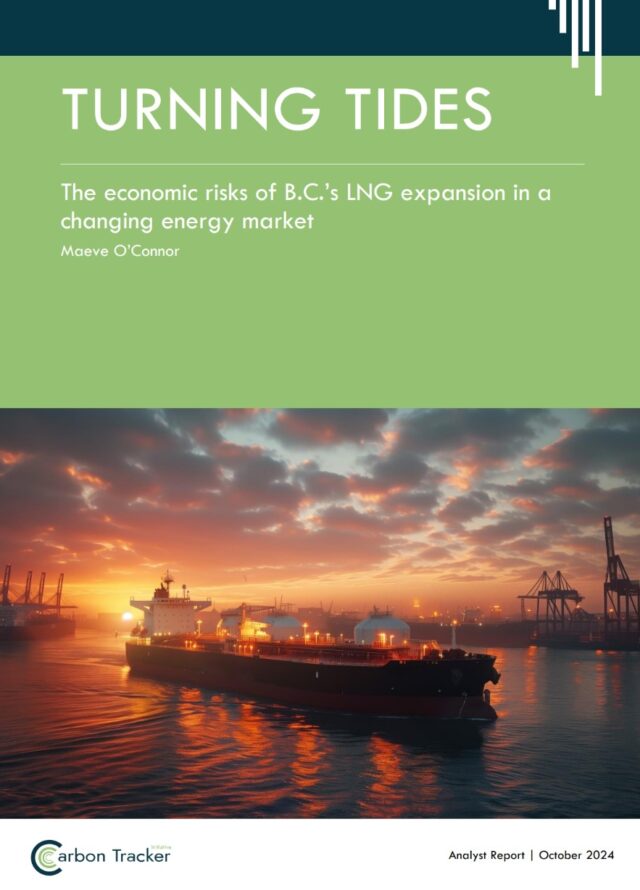Turning Tides: The economic risks of B.C.’s LNG expansion in a changing energy market
Published by:
David Suzuki Foundation and partners
Authored by:
Maeve O’Connor
Partners:
Carbon Tracker
ISBN:
978-1-998631-00-1
Climate solutions British Columbia, climate change, fossil fuels, economics
Written by Carbon Tracker — an international financial think tank that specializes in the impact of the energy transition on capital markets — this report compares the economics of all worldwide currently proposed liquefied natural gas projects that have yet to reach a final investment decision. It concludes that the four LNG terminals still awaiting final investment decision in British Columbia are likely to lose out to competition from producers in Qatar, the U.S. and Mozambique, which can supply significant volumes at lower prices.
Assessments for the report are based on data that show the global LNG market is likely to be oversupplied by 2030, as a glut of new production comes online.
B.C.’s industry will ramp up just as global LNG production is expected to plateau, making it a late entrant to a market dominated by established incumbents with better opportunities for economies of scale.
It warns that B.C.’s proposed LNG expansion carries significant economic risks for private and public sector proponents.
